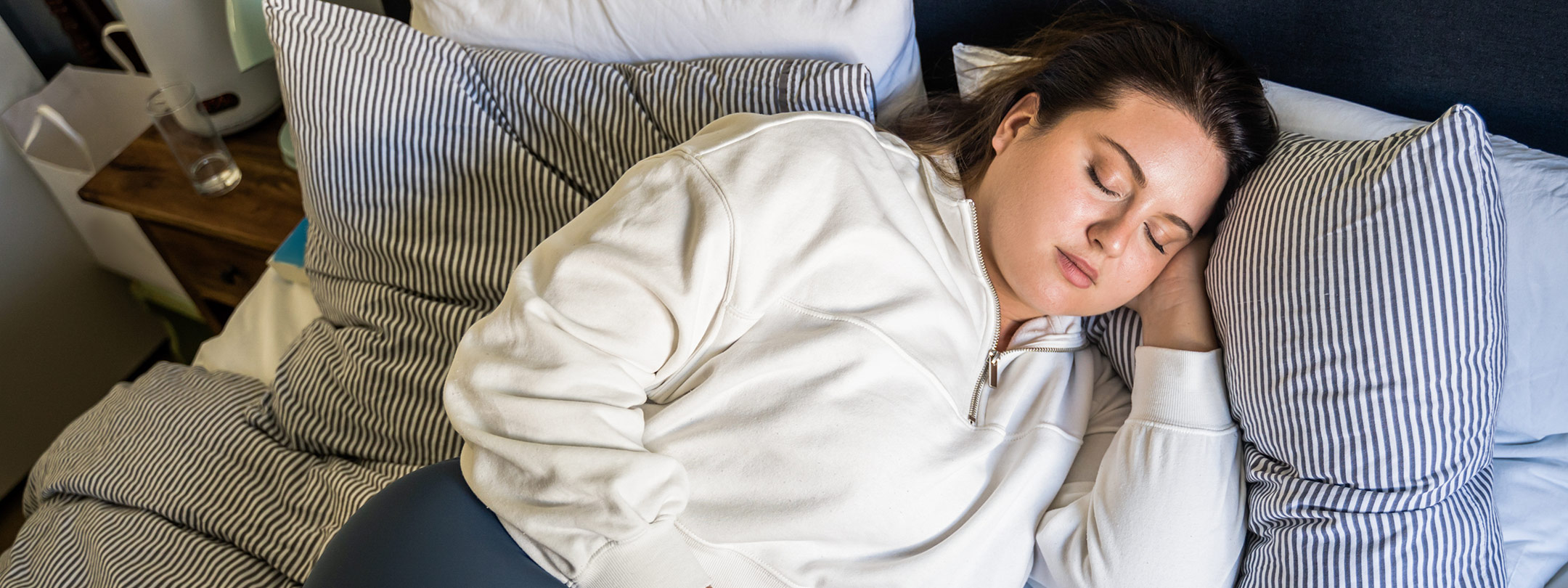If you’re reading this, there’s a chance that you’re trying to lose weight and may not have had success with what you’re currently doing. If you've been eating healthfully and exercising consistently, lack of quality sleep may be the missing piece to your weight loss formula.
Studies have shown that poor sleep is a factor in contributing to weight gain and obesity. When you aren’t experiencing quality sleep on a consistent basis, you are more likely to have a higher Body Mass Index (BMI).
LACK OF SLEEP COULD AFFECT YOUR APPETITE
Adults who get sufficient amount of sleep at night have better control over their cravings and appetite than adults who frequently have sleepless nights. This is because the less sleep you get, the more your hormones that regulate hunger are affected in a negative way.
These appetite hormones are called leptin and ghrelin. Leptin is what signals that you’re full, so if it’s not working properly, you don’t always know if you’re satisfied and have eaten enough food. Sent from your stomach, ghrelin is the hormone that tells your brain that you’re hungry. A lack of quality sleep disrupts the normal regulation of these hormones. It’s tough for you to know whether you’re legitimately hungry when your hormones aren’t operating properly.
While it sounds tough to manage your weight, the good news is that there are things you can do to improve the quality of your sleep.
REDUCE SOURCES OF LIGHT AND SOUND
Any type of stimuli can prevent you from getting quality sleep. Your brain naturally releases melatonin to help you feel sleepy when it’s dark. To help your brain produce more melatonin than it is currently releasing, you can do things like hanging blackout shades in your window, using an eye mask, and dimming lights an hour before getting in bed.
GIVE YOURSELF TIME TO WIND DOWN BEFORE LAYING DOWN
Aim for 30 minutes without electronics before getting into bed. Don’t do any work an hour before your bedtime—that means no emails or filing invoices. And those text messages can wait until tomorrow.
A major part of winding down before bedtime is managing stress. Try aromatherapy and meditation to help you ease your mind. You can also do some gentle stretching and take time to write in a gratitude journal.
STICK TO A ROUTINE
When you find out what works, keep doing it. It can be difficult to stick to a routine when you have guests staying over or are traveling, but do your best. The same holds true on weekends. One way to keep yourself accountable is by setting alarms on your phone or asking your significant other for help in sticking to a sleep routine.
TAKE ACTION
Now that you have a better idea of how sleep affects your ability to maintain a healthy weight, take steps to improve your quality of sleep. You’ll be able to get more sleep as you make time for it. Quality sleep goes hand-in-hand with proper nutrition and exercise. With proper sleep, you’ll also get more out of your workouts because your body will be able to recover properly.
Select Health may link to other websites for your convenience. Select Health does not expressly or implicitly recommend or endorse the views, opinions, specific services, or products referenced at other websites linked to the Select Health site, unless explicitly stated.
The content presented here is for your information only. It is not a substitute for professional medical advice, and it should not be used to diagnose or treat a health problem or disease. Please consult your healthcare provider if you have any questions or concerns.
Related Articles

